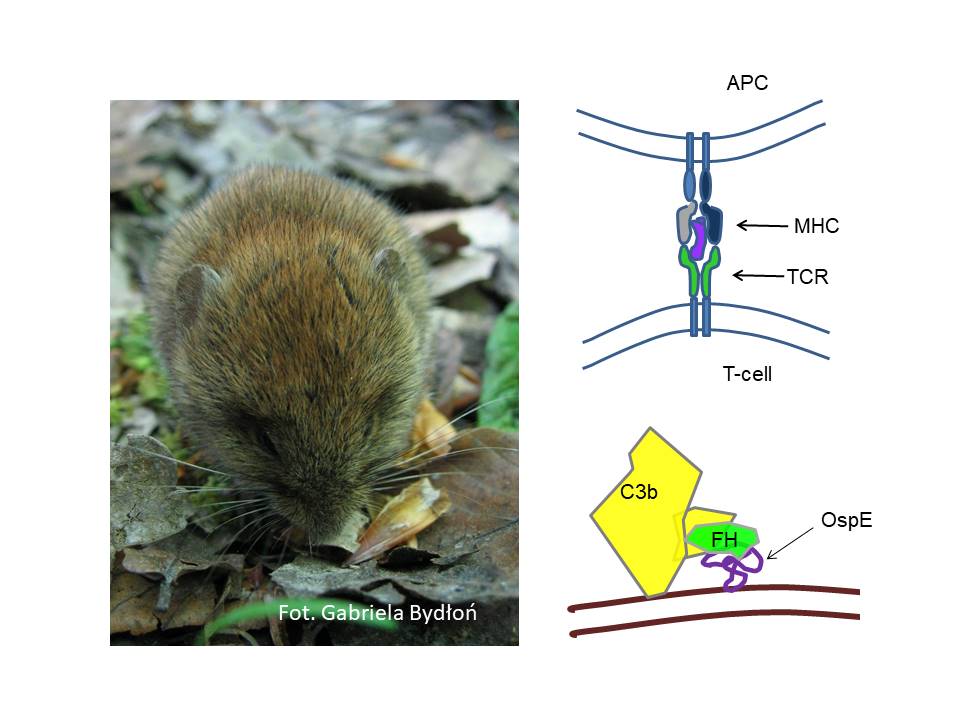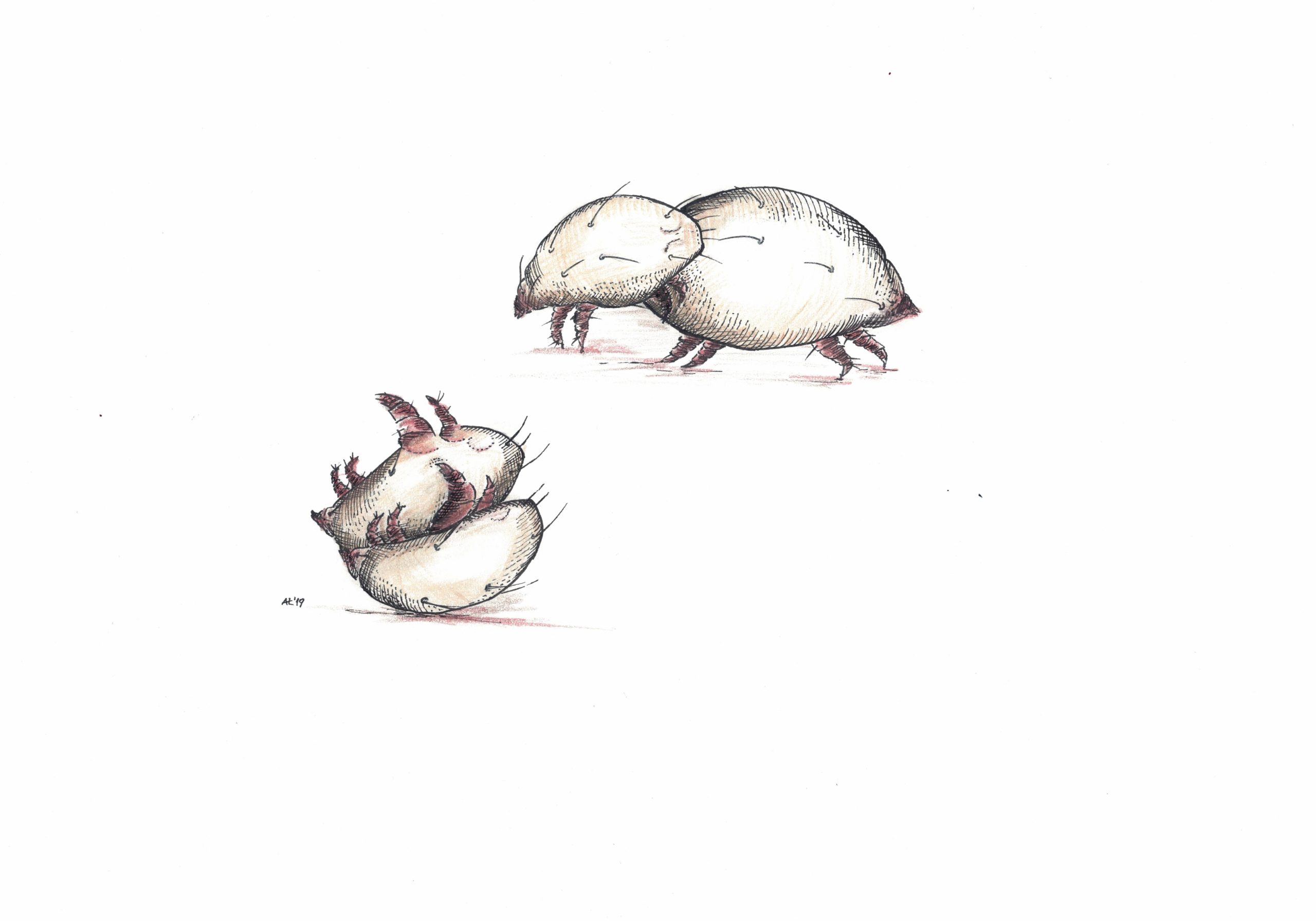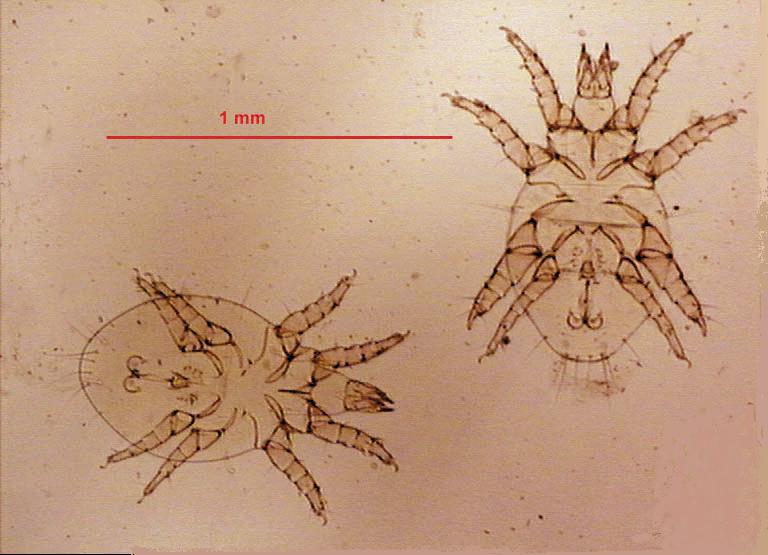Nasze projekty


Koewolucja gospodarz-pasożyt w strefie wtórnego kontaktu: konsekwencje dla przepływu genów i epidemiologii
Eng: Host-pathogen co-evolution across a secondary contact zone: consequences for gene flow and epidemiology
Finansowany przez Narodowe Centrum Nauki, nr 2019/34/A/NZ8/00231.
Celem projektu jest przebadanie koewolucji pomiędzy krętkami boreliozy a jednym z ich głownych żywicieli, Borrelia afzeliin, na poziomie genów
Eng: The project aims to investigate coevolution between Borrelia afzelii and its rodent host, the bank voles, at the level of genes.
Publikacje
MHC wpływa na produkcję przeciwciał wiążących białka powierzchniowe Borrelii
Praca Joanny Różańskiej-Wróbel, Jacka Radwana i współpracowników w Molecular Ecology (http://doi.org/10.1111/mec.17534) dokumentuje wpływ genotypu w głównym kompleksie zgodności tkankowej (MHC) na produkcję przeciwciał specyficznych dla polimorficznych białek powierzchniowych krętków Borrelii, używanych przez nie do manipulowania układem odpornościowym żywicieli. Wynik ten dostarcza przykładu interakcji pomiędzy genami infekcyjności i odporności, przewidywanej prze teoretyczne modele koewolucji żywiciela i pasożyta.
Płeć, agresja i ekologia: jak dobór płciowy wpływa na dynamikę populacji?
Eng: Sex, aggression, and ecology – how sexual selection alters population dynamics?
Finansowany przez Narodowe Centrum Nauki, nr 2020/39/B/NZ8/00152
Eng: The project aims to investigate to investigate the effect of sexual selection, particularly male fights, on population dynamics under heat stress. This is done using experimental evolution of mite species in which aggressive and armored fighter males co-occur with benign unarmored ones.
Celem projektu jest zbadanie roli doboru płciowego, w szczególności związanego z walkami pomiędzy samcami, na przeżywalność i dynamikę populacji w warunkach stresu termicznego związanego z falami ciepła Badania są prowadzone przy użyciu ewolucji eksperymentalnej roztoczy z rodziny rozkruszkowatych, u których współwystępują uzbrojone samce agresywne i pozbawione oręża samce nieagresywne.
Publikacje
Ewolucja cech o charakterze oręża upośledza przetrwanie populacji
Praca Aleksandry Łukasiewiczn, Jacka Radwana i współpracowników w Evolution (https://doi.org/10.1093/evolut/qpad139) dowodzi, że zagrożenie małych populacji poddanych presji podwyższonej temperatury otoczenia rośnie, gdy dominują w niej samce posiadające oręża służące im do walk o samice. Nie wynika to ze zwiększonej wrażliwości uzbrojonych samców na stres środowiskowy. Byś może jest to skutkiem negatywnego wpływu wariantów genetycznych, związanych z ekspresją oręża, na samice.

Sexual selection and genetic variation: evolve and re-sequence approach
Funded by Polish Science Center (NCN) to JR.
The purpose of the project will be to fill the important gap in our understanding of the process of evolution by checking if evolution of elaborated, sexually selected traits does help to maintain genetic variation within populations. The project will use experimental evolution approach, and the subject of evolution in laboratory will be a mite with very short generation time, in which males vary in expression of elaborated sexually selected trait: thickened legs which are costly to produce and hinder movement but are useful in intersexual combats. Populations will be forced to evolve towards low or high proportion of males with thickened legs, and after 20 generations (about 1 year in laboratory) their genomes will be sequenced to check whether amount of genetic variation is higher in evolutionary lines in which thickened legs are common.
Previous projects
Testing new MHC allele advantage in semi-natural populations of the guppy, Poecillia reticulata.
Collaborative grant lead by JR with dr Cock van Oosterhout (University of East Anglia) and Dr. Joanne Cable (Cardiff University, School of Biosciences) funded by the Polish Science Centre (NCN).
Genes of the Major Histocompatibility Complex (MHC), involved in parasite recognition, are crucial for adaptive immune response in vertebrates. The extreme polymorphism of these genes continues to be a major focus of evolutionary biology. While theories explaining the maintenance of MHC polymorphism have been proposed decades ago, empirical tests of some of the most influential hypotheses are scant. Most notably, predictions about frequency-dependence selection (i.e. the hypothesis that rare and novel MHC alleles should be selected for because fast-evolving parasites will adapt to evade immune recognition by common MHC alleles) have not been tested. The aim of this project is to test two crucial predictions of this hypothesis using semi-natural populations of the guppy, Poecilia reticulata:
- Individuals possessing new MHC alleles will be burdened with fewer parasites than individuals without such novel MHC alleles.
- The frequencies of the newly introduced MHC alleles will increase relative to the frequencies of newly introduced neutral marker alleles over generations.
Genetic basis and adaptive significance of male dimorphism in two species of acarid mites with contrasting morph determination systems.
Funded by Polish Science Centre (NCN) to JR, hosted by Jagiellonian University, Kraków.
Alternative mating tactics are among the most spectacular examples of discontinuous phenotypic variation within species. Acarid mites, where a number of species are characterized by the presence of discontinues morphologies (armed vs. unarmed) associated with alternative behavioral tactics (fighting vs. scramble competition) determined either genetically or by environmental cues, provide an excellent system to study the evolution of alternative phenotypes and evolutionary transitions between canalized and plastic phenotype determination.
The study will use two congeneric acarid species, Rhizoglyphus robini and R. echinopus, differing in male determination mode (genetic and environmental, respectively) to identify genes involved in male morph expression, and to identify common and mode-specific expression patterns.
Evolution of the number of copies of MHC genes: testing optimality hypothesis and exploring alternatives.
MAESTRO grant to JR funded by Polish Science Centre (NCN).
Genes of the major histocompatibility complex (MHC), coding for proteins involved in parasite recognition in vertebrates, but also playing a role in mate choice and social interactions, are a paradigm for the maintenance of adaptive polymorphism. However, our understanding of the evolution of the number of expressed MHC molecules is only rudimentary.
The first aim of the project is to test the crucial prediction of the optimality hypothesis (Nowak et al. 1992), which poses that increased parasite recognition capacity associated with expressing many MHC molecules is counterbalanced by the simultaneous decline in T-cell repertoire. This prediction will be tested in the bank vole Clethrionomys glareolus, a species showing extensive inter-individual variation in the number of classical MHC genes expressed.
The second aim of the project is to explore, by means of computer simulations, alternative mechanisms potentially shaping the number of expressed MHC genes, including mate choice and constraints on the evolution of proteins expressed by pathogens.
Genomic consequences of artificial introduction, expansion and population replacement in the Trinidadian guppy
SONATA grant to MK funded by Polish Science Center (NCN).
Guppies are widespread in their native range in Trinidad, but humans have artificially introduced them into a number of previously guppy-free rivers over the last few decades. Our study will focus on such a population, established approx. 60 years ago. Since introduction, this population has rapidly expanded, spreading to lower parts of the river and forming an excellent system to study genetic consequences of spatial expansion. By utilizing some of the latest techniques for sequencing and analyzing whole genomes, we aim to assess how expanding populations accumulate genetic variation in the manner predicted by mathematical theory.
Selected publications:
- Burda, K., & Konczal, M. (2023). Validation of machine learning approach for direct mutation rate estimation. Molecular Ecology Resources, 23(8), 1757-1771.
- Nadachowska‐Brzyska, K., Konczal, M., & Babik, W. (2022). Navigating the temporal continuum of effective population size. Methods in Ecology and Evolution, 13(1), 22-41.
Individual grants, fellowships and awards
Testing the role of recombination and deleterious variation in shaping genomic landscapes of introgression in Trinidadian guppies
Bekker fellowship for Mateusz Konczal (funded by National Agency for Academic Exchange). Resulted publication:
- Charlesworth, D., Qiu, S., Bergero, R., Gardner, J., Keegan, K., Yong, L., … & Konczal, M. (2024). Has recombination changed during the recent evolution of the guppy Y chromosome?. Genetics, 226(1), iyad198.
Red Queen Hypothesis and molecular evolution of parasites – the case study of species from the genus Gyrodactylus
Postdoctoral internship for Mateusz Konczal (funded by Polish Science Centre). Selected publications:
- Konczal, M., Przesmycka, K. J., Mohammed, R. S., Phillips, K. P., Camara, F., Chmielewski, S., … & Radwan, J. (2020). Gene duplications, divergence and recombination shape adaptive evolution of the fish ectoparasite Gyrodactylus bullatarudis. Molecular ecology, 29(8), 1494-1507.
- Konczal, M., Ellison, A. R., Phillips, K. P., Radwan, J., Mohammed, R. S., Cable, J., & Chadzinska, M. (2020). RNA‐Seq analysis of the guppy immune response against Gyrodactylus bullatarudis infection. Parasite Immunology, 42(12), e12782.
- Konczal, M., Przesmycka, K. J., Mohammed, R. S., Hahn, C., Cable, J., & Radwan, J. (2021). Expansion of frozen hybrids in the guppy ectoparasite, Gyrodactylus turnbulli. Molecular ecology, 30(4), 1005-1016.
Environmental quality and intensity of sexual conflict
Pre-doctoral grant lead by Aleksandra Łukasiewicz (funded by Polish Science Centre).
Do attractive males of guppies have more grandchildren?
Pre-doctoral grant lead by Karolina Przesmycka (funded by Polish Science Centre).
MHC genes copy number and TCR repertoire size in the bank vole: diversity, selection and the optimality hypothesis
Doctoral scholarship for Magdalena Miglaska (funded by Polish Science Centre).
